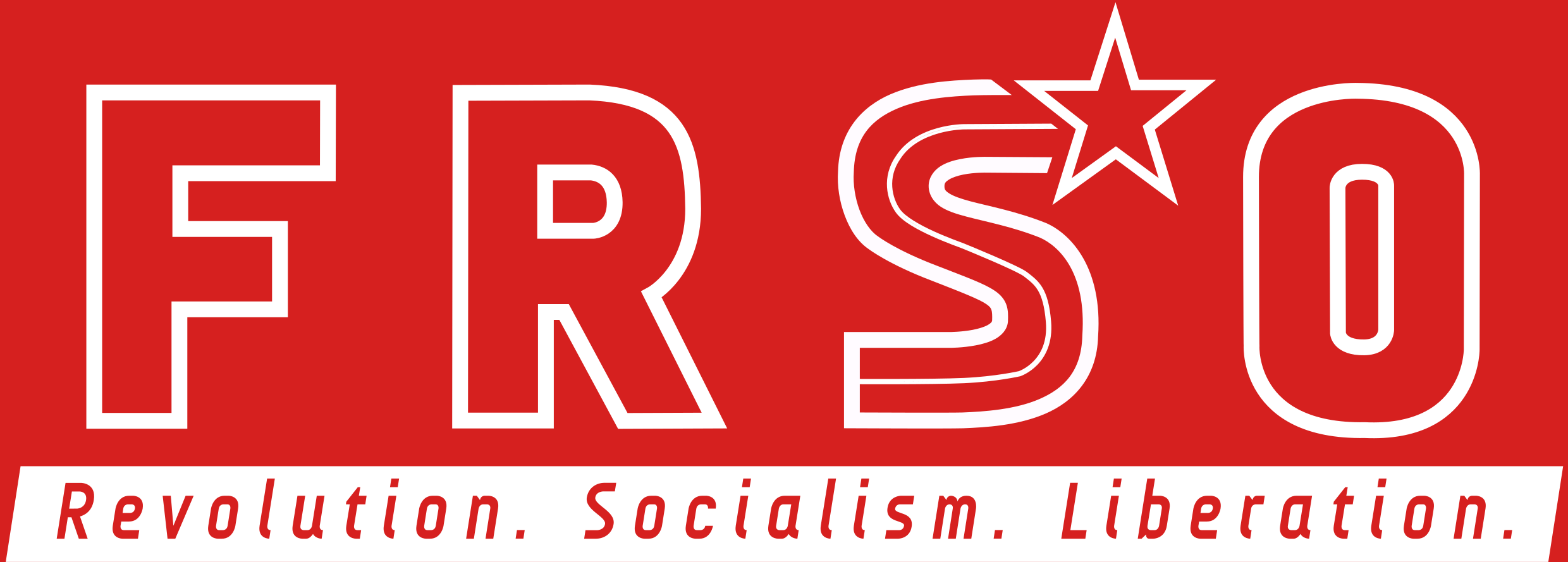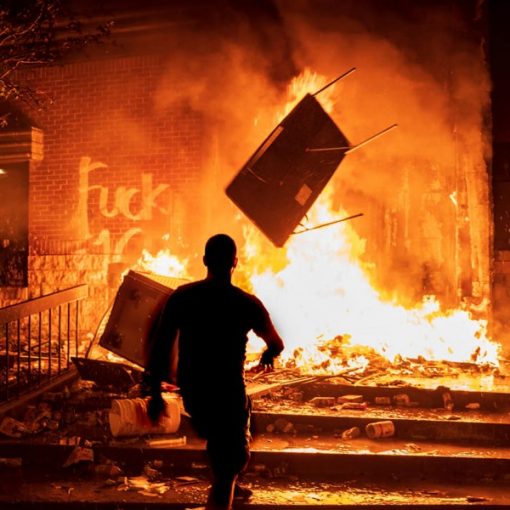By Kati Ketz, Tracy Molm, and Kosta Harlan
for the Student Commission of Freedom Road Socialist Organization
We in Freedom Road Socialist Organization were disappointed to read Rachel Haut’s September 2008 interview with the Platypus project on “the present and future of SDS”. Freedom Road members work very hard to maintain Students for a Democratic Society as a strong, fighting organization that benefits from its ideological plurality while remaining united practically by radical, anti-imperialist activism. Unfortunately Rachel Haut, an SDS organizer in New York, said a few things to give us pause. We would like to take this opportunity to address those points here, because we think the things Rachel says have the potential to undermine some of SDS’s core principles. Mainly, we are concerned with the mistaken notion that FRSO wants to ‘take over’ SDS. We also want to address Rachel’s statement that “Maoism is in opposition to a democratic society” and that “it is inappropriate to have conversations about ideological differences when we still have Maoists in the organization”. Rachel says she will not ‘condone’ FRSO members being in SDS, and is, in effect, calling for all Marxist-Leninists to be purged. We think this sort of sectarianism is and has been a detriment to SDS as a whole. These are big issues, and we can’t deal with them thoroughly here. But we think a conversation is needed and that people in SDS should talk to us about these things, whether they agree or disagree with us.
What is Freedom Road’s agenda in SDS?
A few people think Freedom Road’s ‘agenda’ in SDS is to ‘take over’ and turn this radical and vibrant student organization into something we direct and control in an undemocratic way. Anybody who has spent any time working with us can see that this is not the case. Members of FRSO have been working in SDS since the first National Convention in Chicago back in 2006. What have we been doing? We have organized militant local chapters. We organized against the war in Iraq, for immigrants’ rights, labor solidarity, in defense of the Jena Six, and more. We are all involved in a lot of local work, and while doing that, we worked hard to build national campaigns. In 2007 and 2008 members of Freedom Road were in the lead of SDS’s work around opposition to the 4th and 5th anniversaries of the U.S. war against Iraq. This led to actions on more than 80 campuses in 2007 and on 90 campuses in 2008, many of which were not associated with SDS before. Through this and other work we’ve brought many new activists and student groups to radical politics and into SDS. We helped organize student contingents in major national marches and we also helped to organize the 2007 and 2008 National Conventions in Detroit and Maryland, and the 2008 SDS Action Camp in Asheville. We have always participated in an honest and straightforward way in SDS’s agreed-upon democratic processes and have never worked to undermine them or to marginalize others in SDS. It is the same for our members who work in the antiwar movement, the trade unions, the immigrants’ rights movement, in the movements of oppressed nationalities, and in the poor people’s movement. We will continue to work in this way.
What then is Freedom Road’s ‘agenda’ in SDS? Our larger strategy is available for all to see on our website – Class in the U.S. and Our Strategy for Revolution. That strategy is the United Front against Monopoly Capitalism. Furthermore, in all the work that we do, we try to keep in mind three revolutionary objectives:
- Harm the enemy and win all that can be won for the people.
- Raise the level of consciousness, organization, and struggle of the mass organizations we work in.
- Win the advanced fighters to Marxism-Leninism and build organization for revolution.
That should be straightforward enough. We believe that all three of those objectives are at the core of how we need to formulate revolutionary tactics.
Furthermore, we think that the contradiction between imperialism and the oppressed nations and peoples is the principle contradiction on a world-scale. We think the Iraq war, where U.S. imperialism is tied down by the armed Iraqi people, is the main front of this contradiction. Put simply, we think the Iraq war is central to the political situation in this country. We see the contradiction between U.S. imperialism and the sovereignty and self-determination of the Iraqi people as playing a determining role in relation to all other contradictions in society. We also believe that, despite all of its shortcomings and problems, the antiwar movement has tremendous potential for SDS. So to that end, much of our work in SDS is centered on the war in Iraq. In that regard, our ‘agenda’ is best expressed in our 2007 statement, The Movement Against the War In Iraq: A New Period and Our Tasks. The core of that ‘agenda’ is keeping the demand for ‘troops out now’ at the forefront of the movement. In addition, we see raising an anti-imperialist pole in the antiwar movement, along with raising the social costs of the war, as tasks of major importance.
We came to these conclusions through a process of practice, summation, analysis, criticism and self-criticism, guided by Marxism-Leninism.
Why we are Marxist-Leninists
Rachel Haut says, “I think it is inappropriate to have conversations about ideological differences when we still have Maoists in the organization.” We see this as an open invitation to have just such a conversation. Therefore, we’re going to take this opportunity to say a few things about Marxism-Leninism and about the contributions of Mao Zedong and the Chinese Revolution.
We see Marxism-Leninism as a science, drawing from and synthesizing the great contributions of political economy, philosophy, and socialism that came before it. In this era of imperialism and proletarian revolution, Marxist-Leninists have made revolutions all around the world. Marxism-Leninism was an inspiration and a weapon in the hands of our predecessors. The same can be said today as it is used as a tool for liberation by working and oppressed people around the world, in Palestine, Colombia, Nepal, the Philippines, and here at home. We use Marxism-Leninism to analyze conditions and formulate strategies and tactics to act and change those conditions.
Two points are made by Rachel Haut regarding Marxism-Leninism: first, Rachel says it is opposed to democracy; second, she says it is irrelevant.
Marxist-Leninists have a particular understanding of democracy and the State and how democracy relates to class structures in society. We understand very well that in capitalist society, ‘democracy’ means that only the rich and powerful get a say. There is a lot of unity in SDS around this view, so we won’t dwell on it. The goal of socialism is at its very core related to this question of class and democracy. We think working people make society run, and should therefore run society. We think this demands revolutionary change. It is as simple as that. We think this is a million times more democratic than the bourgeois ‘democracy’ of the Republicans and Democrats. We hope that Rachel Haut is not being duped by tired old McCarthyite lies about ‘communist totalitarianism’ just because that’s what the ruling class teaches in their high school civics classes. That certainly isn’t what we intend, and we don’t think that accurately characterizes the former Soviet Union, the People’s Republic of China, or the other socialist countries.
As for its relevance, the track record of Marxism-Leninism speaks for itself. The Great October Socialist Revolution in Russia, the Chinese revolution, the Vietnam war of national liberation and the dozens of national liberation movements that ended colonial rule, the hundreds of millions of people who found a way out from the misery imposed on them by imperialism, the establishment of socialism in over a third of the globe – all this did not fall out of the sky, but was in large part thanks to the heroic efforts of communist militants organized into revolutionary parties that creatively applied Marxism to their specific conditions. As for the 21st century, the overthrow of the Nepalese monarchy – a revolution at the roof of the world – was not an accomplishment of bourgeois democrats. This victory was paid for in blood by thousands of Nepalese communists, whose self-sacrifice, perseverance, and correct political practice allowed their small guerrilla movement to empower millions in the overthrow of the oppressor, and who are now moving forward in building a humane society in one of the poorest countries on earth.
In sum, it is the direct opposite of what our modern day anti-communists claim: nothing could be more relevant to the present political situation than Marxism, for as long as imperialism exists, the need for revolution is present, and to make revolution, there must be a communist party that applies Marxism to its particular situation.
On the contributions of Mao Zedong
Because Rachel Haut characterizes us as ‘Maoists’ we feel compelled to dwell on the place of Mao Zedong in all of this. We do not think that Mao Zedong was an infallible genius, nor do we think that he was solely responsible for the successes of the Chinese Revolution. Mainly that victory belongs to the Chinese people, but the communists helped to give form to their demands, and to carry out the revolution in strategic way that ultimately brought about success.
We in Freedom Road draw a great deal from the work of Mao Zedong. He made great contributions to revolutionary strategy and tactics for Third World liberation struggles, in particular his theory of protracted people’s war and New Democratic revolution. We think his formulation of the Mass Line, a method of leadership that involves learning from masses as you move forward, is central to success. We have a document on our website concerning this: Some Points on the Mass Line. Mao also contributed to Marxism-Leninism in his understanding of various contradictions in society, and how they interrelate. These are major issues for all revolutionaries. Finally Mao fought against some of the mistaken ideas that were put forward at various times by others in the socialist camp, including the Soviet Union. He led the fight against modern revisionism, which pretends to ‘revise’ Marxism while in truth undermining Marxism’s basic revolutionary principles. In general the anti-revisionist struggle helped Marxist-Leninists clarify a number of pressing theoretical and practical issues.
Unity and Struggle in SDS
“We are not a vanguard,” Rachel says, regarding SDS. We are in agreement. For some reason that is unclear to us, Rachel Haut seems to think that we want to change this fact. What have we ever said or done to make anyone think that we want to make SDS into a ‘vanguard’, by which we assume she means something like a democratic-centralist, Marxist-Leninist organization? We have never said or done anything that should give her or anyone else that impression. By implying the contrary she is only trying to stir up trouble. FRSO has existed for more than twenty years. All this time we have worked in mass organizations, student groups, trade unions, and so on. We have always worked to strengthen those organizations, help them fight, win victories, and grow stronger. We have always been champions of real democracy, and have never tried to command the masses in a top-down way. Our work in SDS is no different.
We are opposed to ideological purges in SDS. We think SDS benefits from being a ‘big tent’ of different ideological tendencies. To this end Mao once said, “You may ban the expression of wrong ideas, but the ideas will still be there. On the other hand, if correct ideas are pampered in hothouses and never exposed to the elements and immunized against disease, they will not win out against erroneous ones. Therefore, it is only by employing the method of discussion, criticism and reasoning that we can really foster correct ideas and overcome wrong ones, and that we can really settle issues.”
We appreciate our friends and allies in SDS who, though they may not agree with us on everything, have defended us against attacks and have stood up against sectarianism. For that we are thankful. Sectarianism is harmful to SDS. It has created mistrust and provided fertile soil for damaging rumors and flat out lies. It can be used to sow division and undermines real democracy. We have found it damaging on several occasions to the hard work that we all do.
We think it is a good thing that anarchists, social-democrats, Marxists, and other radical Leftist ideological tendencies can coexist in SDS. We think this gives SDS its vibrancy and energy. We have gained valuable lessons and experience from working alongside of so many different political views in one organization. We think that as SDSers we have far more to unite us than divide us, and that at the core of our unity is practical struggle. Because despite our differences almost all of us can unite around this fact: we are out to fundamentally transform the social relations that exist in this country – to overthrow capitalism and empower oppressed and working people.
This is an enormous task and will require decades of hard work, sacrifice and perseverance. We recognize that building a national student movement is one step along the way to this goal. But we would like to emphasize that this movement cannot have sectarianism as one of its pillars. That is something we have always opposed and will continue to struggle against.
For our part, we will continue our work of building up militant local chapters, building national campaigns that help SDS grow and expand its reach, bringing students into the struggle against the war on Iraq, and dedicating our time, energy and resources to construct a national student movement. It is our sincere desire to reach out and learn from, work with, and unite any and all student activists – regardless of ideological orientation – along the way.
In unity and struggle,
Kati Ketz
Tracy Molm
Kosta Harlan
For the FRSO Student Commission



